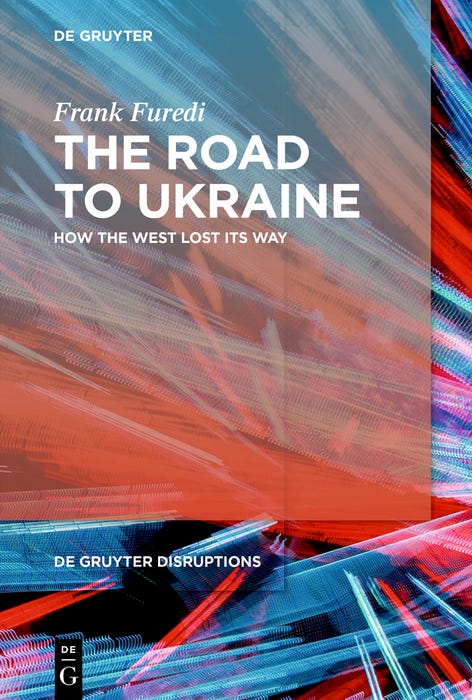Join in the conversation. Paid subscribers get to comment and interact with authors.
Are we seeing the final phase of the disintegration of the Soviet Empire?
Bogged down in the Ukraine, Russia is less and less able to retain its hegemonic status over the Central Asian and Caucasus regions.
For years, Moscow advertised its security alliance with the nations of Central Asia and Caucasus as Russia’s answer to NATO. But now this alliance is running on empty Five of its sic members -Armenia, Belarus, Russia, Tajikistan and Kyrgyzstan — have been involved in wars this year, while the sixth, Kazakhstan, has experienced violent internal strife.
Russia’s troubles provide China with a unique opportunity to expand its presence in what has hitherto been recognised as Moscow’s sphere of influence. China has stepped in to fill the vacuum left by Russia’s enforced disengagement from the region.
On a recent visit to Kazakhstan, President Xi Jinping of China promised to ‘resolutely support Kazakhstan in the defence of its independence, sovereignty and territorial integrity,'. His remark served as a veiled warning to Moscow to resist the temptation of involving itself in Kazakstan’s internal affairs.
A few days later, after Tajik forces advanced, China issued a similar pledge with respect to Kyrgyzstan, horning in on Russia’s longstanding role as the guardian of Central Asian borders.
China is also using its powerful economic muscle to gain political advantage in the region. Recently China signed an agreement with Kyrgyzstan and Uzbekistan that established the route of a proposed new railway line to get Chinese exports to Europe by land without going through Russia. This project would serve as an alternative to China’s existing rail link to Europe through Kazakhstan and Russia. Should this new proposed rail line by-passing Russia come to fruition it would highlight Moscow’s precarious geo-political position. Squeezed from two sides - NATO from the West and China from the East - the status as a major regional hegemonic power would be put to question.
As we noted in our new book; The Road To Ukraine: How The West Lost Its Way the unravelling of the Russian Empire can have dangerous consequences for the maintenance of global stability.
As I argue below, ‘The Russian Question’ is one of the most geopolitical important issue of our time!
The Russian question
The unravelling of Russian power will shape the future of Europe.
Russia is in a bad place. The war in Ukraine is not going to plan. And its influence over the other nations in its region is starting to unravel.
Until recently, the question of how to integrate a still powerful Russia into the world order was either downplayed or ignored by the West. But no more. Western policymakers and their international allies are finally waking up to the fact that history did not come to an end with the collapse of the Soviet Union. Unresolved questions and conflicts dating back to the early part of the 20th century are coming to the fore once again. This means that, beyond the bloody war in Ukraine, there are other, potentially far more devastating, conflicts ready to erupt.
If you want gain an insight on the Russian Question from a Russian point of view have a look at Aleksandr Solzhenitsyn’s The Russian Question at the End of the Twentieth Century: Toward the End of the Twentieth Century
I will be discussing my new book at the Battle of Ideas festival, taking place at Church House, Westminster on 15 & 16 October 2022.
Extended early bird tickets are available for a short time – get yours now: www.battleofideas.org.uk/battle-of-ideas-2022-tickets/
Does the Ukraine crisis have its roots deep in the past? Have Western societies forgotten the importance of history? What can be done to reclaim a sense of historical thinking without becoming slaves to the past?




